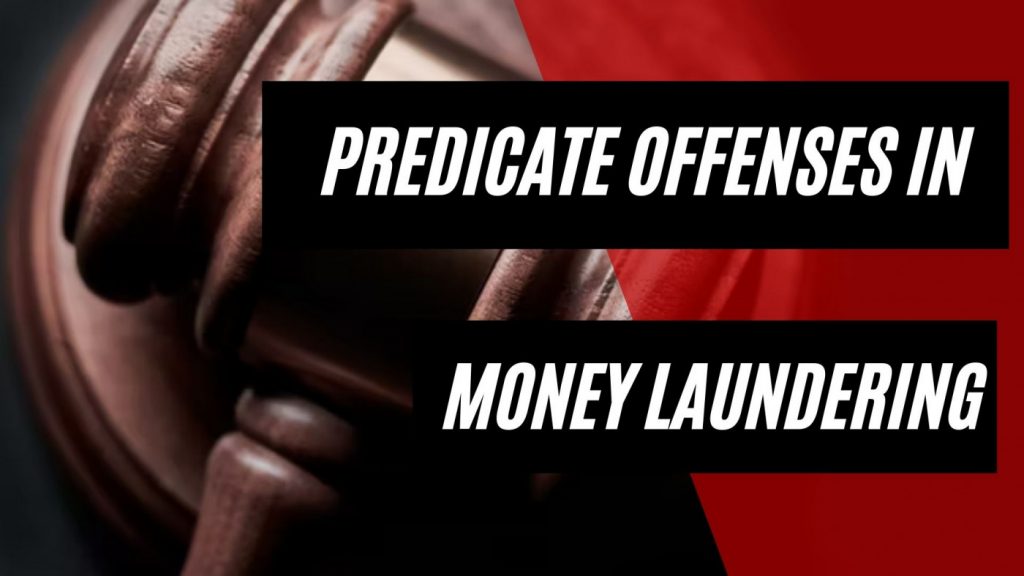Predicate offenses in money laundering refers to a crime component of a larger crime. In a financial context, the predicate offense would be any crime that generates monetary proceeds. The larger crime would be money laundering or financing of terrorism. A predicate offence is a crime that is a component of a more serious crime. For example, producing unlawful funds is the primary offense, and money laundering is the predicate offense.
Predicate Offenses In Money Laundering
Predicate as an adjective means “something said of a subject,” originally from Latin praedicare meaning ‘to proclaim or make known.’ In logic, it came to mean to assert something. In U.S. legal usage, it is a “basis or foundation on which something rests. The term “predicate offense” is usually used to describe money laundering or terrorist financing activities.
The following are some examples of predicate offenses.
In money laundering, a predicate offense that generates funds or assets is required as an entry condition. Predicate offences vary in each country and are usually codified in a country’s criminal code. Since 2004, the FATF has updated the 40 Recommendations to expand the list of predicate offenses. Financial intelligence units in the European Union and the United States have created legislation to mirror or expand these offenses.
In the United States, these offenses were initially created by the Bank Secrecy Act of 1970 and have been expanded by the USA PATRIOT Act of 2001. With the passage of the 6th EU Money Laundering Directive, the European Union has now adopted a standard set of predicate offenses to mitigate loopholes in member state AML legislation.
In the European Union, for example, the so-called sixth European Union Anti-Money Laundering Directive defines and standardizes 22 such offenses for money laundering in all its member states.
Exemplary predicate offenses include narcotrafficking, tax evasion, murder, grievous bodily harm, corruption, fraud, smuggling, human trafficking, illegal wildlife trafficking, and forgery.

Final Thoughts
A predicate crime or offense is a crime that is a component of a larger crime under US criminal law. The larger crime could be racketeering, money laundering, terrorism financing, and so on.
To violate the Racketeer Influenced and Corrupt Organizations Act (RICO), for example, a person must “engage in a pattern of racketeering activity,” and in particular, must have committed at least two predicate crimes within the previous ten years. These include bribery, blackmail, extortion, fraud, theft, money laundering, counterfeiting, and illegal gambling.









